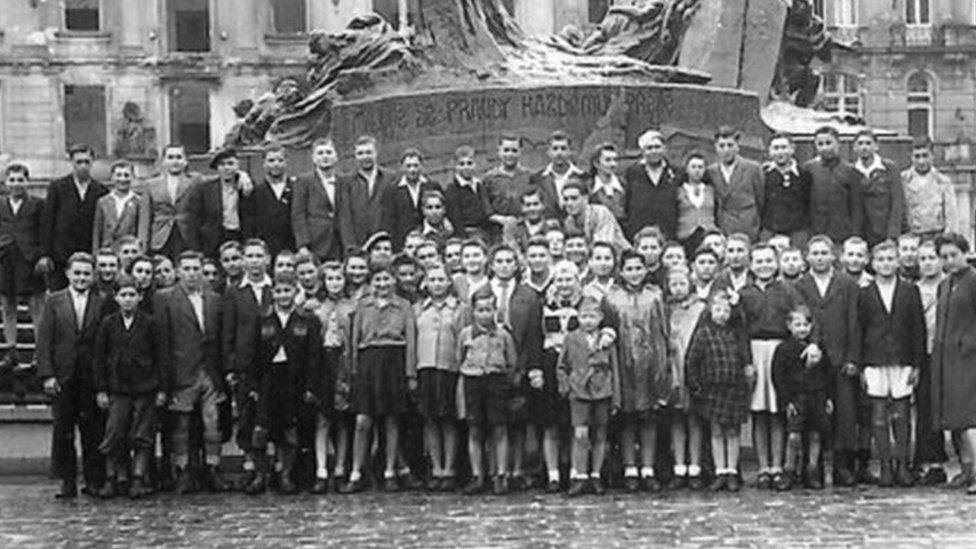Windermere children: Holocaust refugee museum planned
- Published
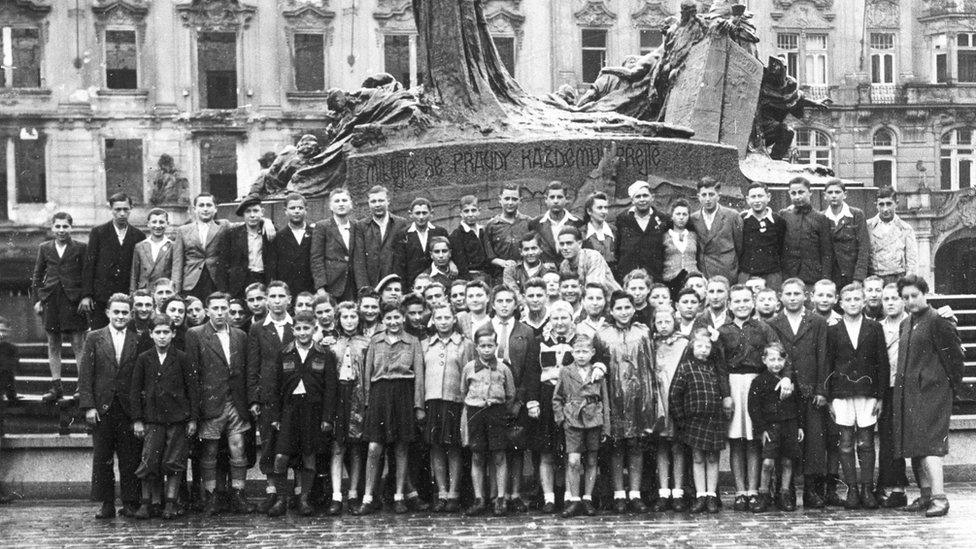
About 300 children were brought from concentration camps to the Lake District in 1945
A museum celebrating the Lake District arrival of child holocaust survivors could be built in the next few years.
About 300 Jewish children were brought to Cumbria after being rescued from concentration camps in 1945.
Architect Daniel Libeskind, who has been brought in to draw up plans, said the "amazing" story of the so-called Windermere children was inspiring.
Trevor Avery of the Lake District Holocaust Project said the plan was in the very early stages of development.
He told BBC Radio Cumbria he hoped the museum would be built near the site where the children lived at Calgarth Park at Troutbeck Bridge.
Mr Avery said it could cost about £20m and he hoped it would be developed and built within five years to allow survivors to visit.
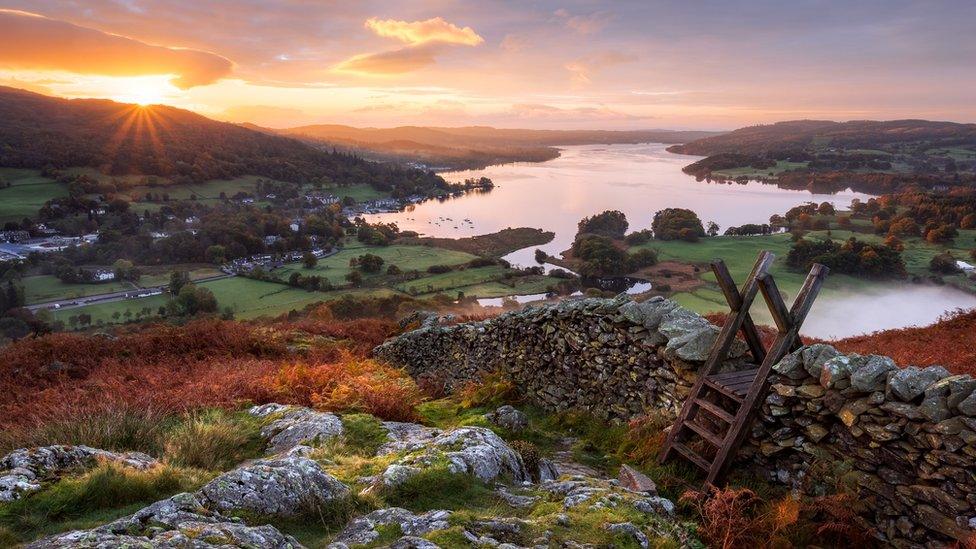
Holocaust survivors said visiting the Lake District made them feel human again after the horror of the concentration camps
The plan was revealed during a reunion of the Windermere children and their relatives attended by more than 100 people over the weekend.
James Gordon, whose grandfather Monty was one of the Windermere children, said: "Every survivor said [coming to the Lake District] is when they became human again, they loved it so much."
Mr Libeskind, a Polish-American architect who previously designed the Jewish Museum in Berlin and Imperial War Museum North in Manchester, said Cumbria gave the "damaged" children "a life".
He told BBC Radio Cumbria it was a story that "should inspire the world about how good the world is", adding: "I've always said this is a story that should be known, not enough people know it."
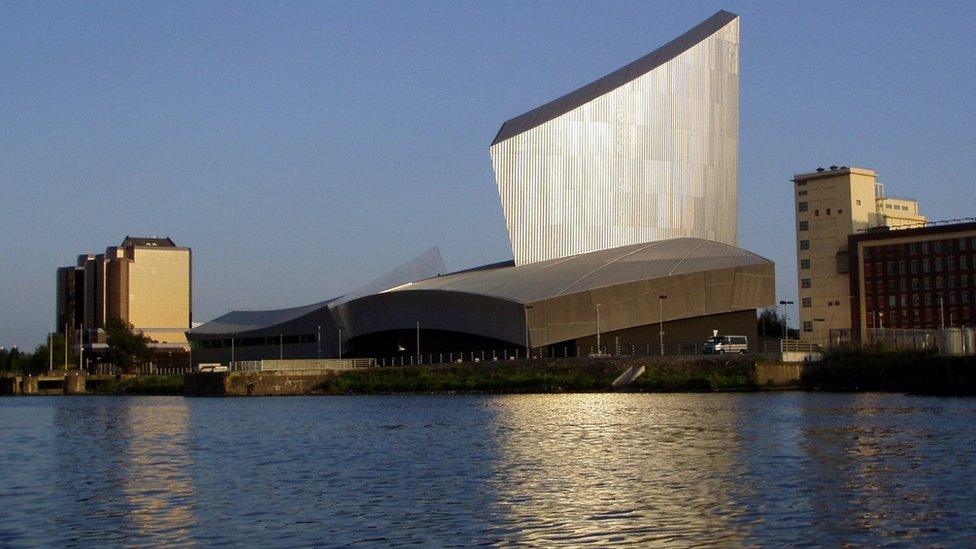
Architect Daniel Libeskind designed the Imperial War Museum North
Although he would not be drawn on what it may look like, he said the museum would "stand out" but also "respond to its local and unique context" and "exquisite environment", adding: "You have to read the poetry of Wordsworth and the poetic beauty of Windermere.
"It was the beauty of nature here which had a lot to do with the healing of the orphan survivors."
The story is currently told in an exhibition in Windermere Library.

Follow BBC North East & Cumbria on Twitter, external, Facebook, external and Instagram, external. Send your story ideas to northeastandcumbria@bbc.co.uk, external.
Related topics
- Published21 September 2021
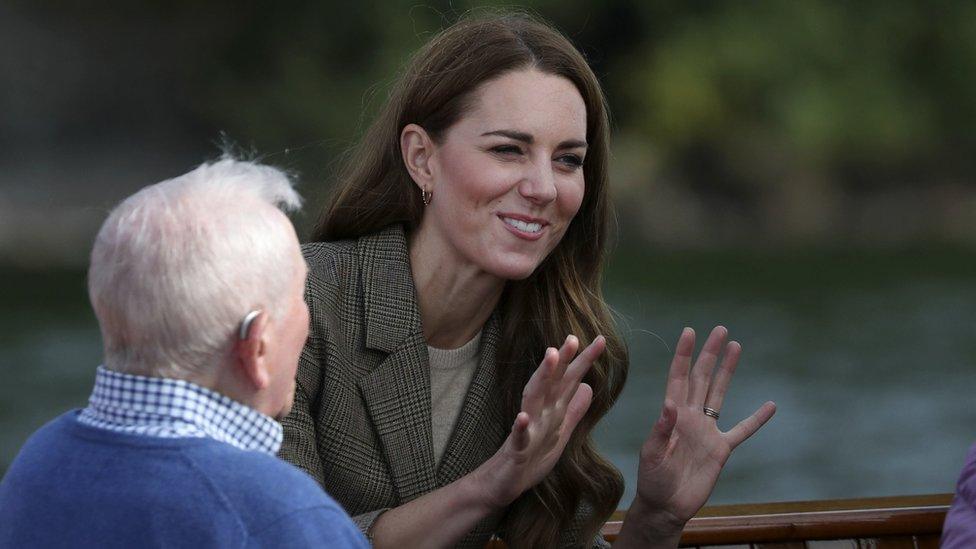
- Published5 September 2021
